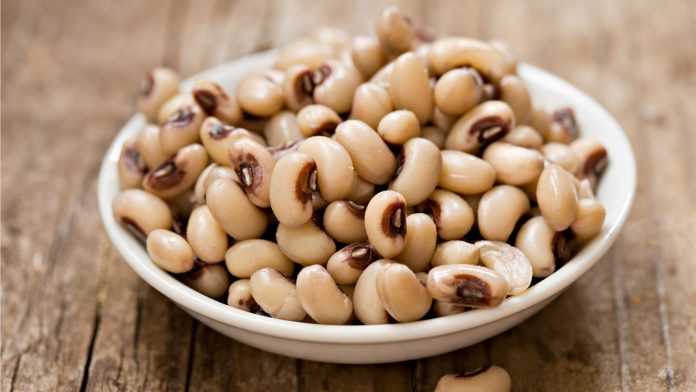A novel study finds that black-eyed peas attract beneficial nitrogen-fixing bacteria, potentially removing the necessity of fertiliser.
New research findings from scientists at the University of California indicate that the ability of black-eyed peas to entice beneficial nitrogen-fixing bacteria has not been reduced by modern farming practises.
Black-eyed peas mitigate need for fertilisers
The team decided to centre their research on black-eyed peas as they are also highly tolerant to droughts, which is a crucial trait for Southern California growers.
The researchers discovered that planting the peas in rotation with other crops may help farmers mitigate the necessity of expensive and unsustainable fertilisers.
The research endeavours have been supported by the US National Science Foundation and the research findings have been published in the journal Evolution.
Without adequate amounts of nitrogen, plants are unable to frow. The plant family legume – that black-eyed belong to – is unique in its capacity to acquire significant quantities of nitrogen by attracting and safeguarding nitrogen-fixing bacteria.
“This ability of legumes led to their success as the third biggest plant family on the planet,” explained evolutionary biologist Joel Sachs of UC Riverside, who conducted the research.
Retaining beneficial nitrogen-fixing bacteria
When farmers grow crops, they frequently concentrate on above-ground traits including disease resistance, yield, and protein content. Only just now have farmers started to closely consider the importance of below-ground traits, like the capability of plants to entice soil-enhancing microbes.
In many circumstances, plants deeply affected by humans do not gain as much from relationships with bacteria as their wild counterparts. Through this study, Gabriel Ortiz, UC Riverside plant pathologist, wanted to investigate whether black-eyed peas – a widely eaten food in many parts of the world – maintain their capability of enticing good bacteria even after being exposed to modern farming practices.
Through this, the researchers discovered that the peas retained their natural capability to form beneficial relationships with nitrogen-fixing bacteria. “In fact, some of the strains appear to have gained more benefit from bacteria than their wild ancestors,” Sachs added.
Experiments consisting of 20 different types of black-eyed peas highlight the potential of a genetic basis for their symbiotic abilities.
“We can use this information to design better-performing plants,” Ortiz concluded.





